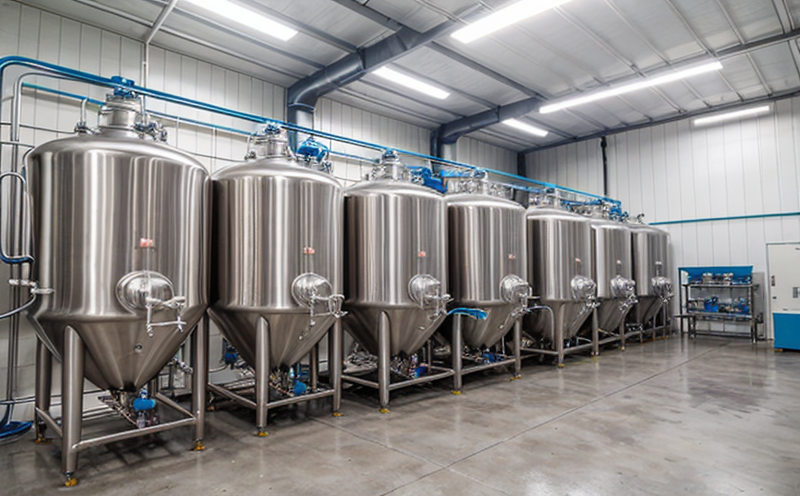USP Detection of Specified Microorganisms in Fermentation Products
The United States Pharmacopeia (USP) 1 Chapter provides a standardized method for detecting specified microorganisms in fermentation products, ensuring that pharmaceutical and biotechnological products meet stringent quality standards. This service is critical for the industrial fermentation and biotechnology sectors to ensure product safety and regulatory compliance.
The detection of specific microorganisms such as Bacillus spp., Clostridium spp., and Mycobacterium spp. is essential for the successful development, manufacturing, and quality assurance of fermentation products. These organisms can lead to spoilage or contamination that could compromise the safety and efficacy of pharmaceuticals derived from fermentation processes.
The testing process involves a series of steps designed to ensure accurate identification of microorganisms. Specimens are prepared by isolating samples from fermentation batches, followed by inoculation into selective media. This allows for the growth of potential pathogens under controlled conditions. Identification is performed using various methods including biochemical tests and molecular techniques such as polymerase chain reaction (PCR).
The service provided adheres to strict protocols outlined in USP Chapter to ensure accurate detection. The method involves multiple stages, starting with the receipt of samples from fermentation processes followed by preliminary examinations for visible contaminants. Following this, selective media are used to culture and isolate specific microorganisms. Positive identifications are made through confirmatory tests which may include serological reactions or genetic analysis.
The results are then compiled into detailed reports that outline all steps taken during testing along with any findings. Compliance with USP standards is crucial for maintaining the integrity of fermentation products and ensuring they meet regulatory requirements set forth by organizations like the FDA (Food and Drug Administration).
Applied Standards
| Standard Number | Description |
|---|---|
| USP | Detection of Specified Microorganisms in Fermentation Products |
Scope and Methodology
The scope of this service includes the detection of specific microorganisms within fermentation products as defined by USP Chapter . This encompasses a variety of industrial applications where fermentation plays a key role, including but not limited to antibiotics production, vaccine manufacturing, and enzyme generation.
For each test, we follow a rigorous protocol that begins with sample collection from the fermentation batch. The samples are then subjected to preliminary examination for visible contamination before being cultured on selective media tailored specifically for the targeted microorganisms. Identification is achieved via both traditional microbiological techniques and advanced molecular diagnostics like PCR.
The methodology ensures high accuracy rates by employing multiple confirmatory tests which cross-verify initial results. Positive identifications are documented thoroughly in comprehensive reports that include all testing procedures, observations made during cultivation stages, as well as final determinations regarding the presence or absence of specified microorganisms.
Quality and Reliability Assurance
- Strict adherence to USP Chapter guidelines.
- Use of validated media for selective growth.
- Inclusion of positive and negative controls in every test run.
- Regular calibration and validation of equipment used in testing.





